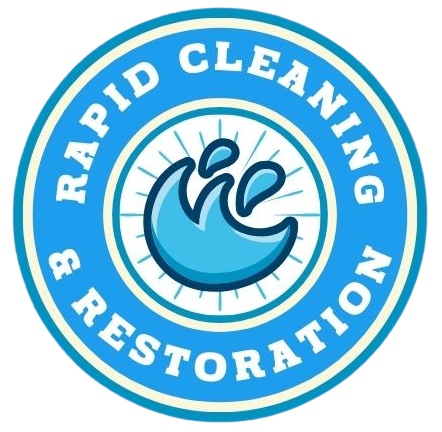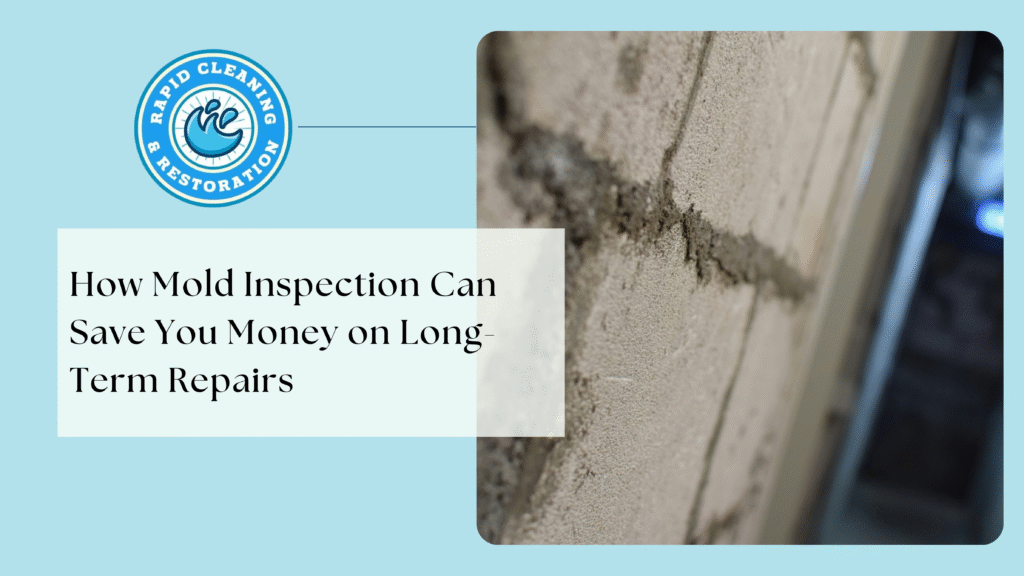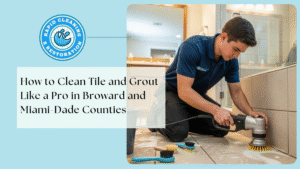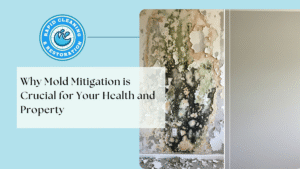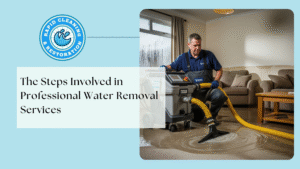Mold is more than just an unsightly nuisance; it’s a silent destroyer that can compromise your home’s structure, reduce property value, and negatively impact your health. By the time mold becomes visible, it may have already spread behind walls, beneath flooring, and into insulation. Investing in a professional mold inspection can help identify problems early, allowing you to avoid costly long-term damage and repairs.
In this guide, we’ll explore how mold inspections work, the hidden costs of unchecked mold, and why early detection can save you thousands down the line.
The True Cost of Mold Damage
Mold thrives in moist, dark environments, often developing unnoticed after:
- Plumbing leaks
- Poor ventilation
- Flooding
- Roof or foundation issues
Left unchecked, mold can:
- Weaken drywall and wood framing
- Damage HVAC systems
- Corrode wiring
- Create costly health issues like asthma and allergies
Average mold remediation costs range from $1,500 to $10,000, while severe cases can easily exceed $30,000 in structural repairs and renovations.
What Is a Mold Inspection?
A mold inspection is a professional evaluation of a building for signs of mold growth. It includes:
- Visual assessment of high-risk areas (bathrooms, basements, attics)
- Moisture readings using infrared or moisture meters
- Air quality testing for mold spores
- Surface sampling to identify mold types
- Comprehensive reporting with findings and remediation recommendations
These inspections uncover hidden mold growth you may not see or smell, yet, help stop damage before it escalates.
How Mold Inspections Save You Money
1. Early Detection = Lower Remediation Costs
The earlier you find mold, the easier, and cheaper, it is to remove. Treating a small mold patch in drywall costs a few hundred dollars. Waiting until it spreads to studs, subflooring, or HVAC systems could cost thousands.
2. Prevent Structural Damage
Unchecked mold eats away at:
- Wood framing
- Drywall
- Insulation
- Flooring adhesives
Mold inspections help you catch leaks or water intrusions early, avoiding massive reconstruction work later.
3. Avoid HVAC Contamination
If mold spreads into your HVAC system, spores can circulate throughout your entire home or office. This leads to:
- Poor indoor air quality
- Costly ductwork replacements
- System-wide mold remediation
A timely inspection can prevent full-system contamination, keeping repair bills lower and the air safer.
4. Protect Against Health-Related Expenses
Mold exposure can cause:
- Chronic coughing or sneezing
- Asthma flare-ups
- Skin irritation
- Headaches and fatigue
Professional inspections reduce long-term health risks, potentially saving thousands in medical bills, missed work, or tenant lawsuits in rental properties.
5. Maintain Property Value
Buyers and renters are wary of mold. If it’s discovered during a property inspection, it could:
- Delay or derail a sale
- Require price reductions
- Prompt legal disputes with tenants
Scheduling regular mold inspections keeps your property market-ready and protected against devaluation.
6. Catch Leaks Before They Worsen
Mold often signals a hidden moisture issue, like:
- Plumbing leaks
- Roof damage
- Cracks in the foundation
A mold inspection can alert you to water issues before they become floods, helping you repair small problems before they lead to bigger costs.
When Should You Get a Mold Inspection?
Consider a professional inspection if:
- You notice a musty odor
- You see dark stains on walls or ceilings
- There has been recent water damage or flooding
- Your HVAC system smells odd when turned on
- Family members or tenants report health issues
- You’re buying or selling a home
Even if no obvious signs are present, yearly mold inspections are a wise preventive measure for older homes or humid climates.
Professional vs. DIY Mold Testing
DIY mold kits are inexpensive but often unreliable. They:
- Can produce false positives from harmless airborne spores
- Don’t detect moisture or pinpoint the source of mold
- Lack of lab-backed results and professional assessment
A certified mold inspector uses tools and techniques that provide accurate, actionable insights, and they’re trained to locate mold in hidden areas most homeowners overlook.
Added Value for Homeowners and Landlords
If you’re a homeowner, a mold inspection:
- Protects your investment
- Avoids costly renovations
- Supports health and peace of mind
If you’re a landlord or property manager:
- It minimizes liability
- Helps comply with rental safety codes
- Reduces tenant turnover and complaints
Final Thoughts
Mold is often a hidden and underestimated threat, but ignoring it won’t make it go away. A professional mold inspection offers early detection, prevention, and peace of mind. Best of all, it can save you thousands by addressing small issues before they grow into structural nightmares or legal disputes.
Think of it not as an expense, but as a smart investment in your health, safety, and home value.
Contact us today!
